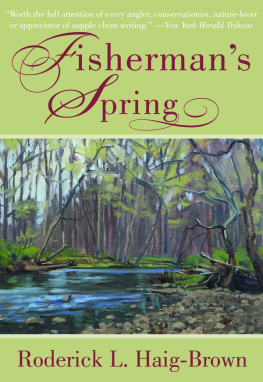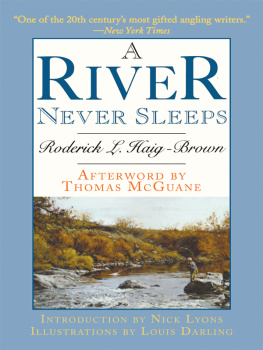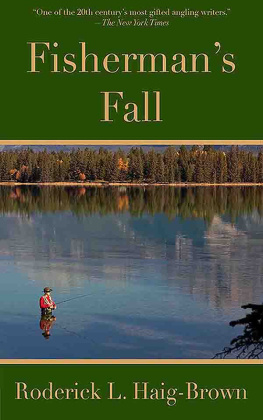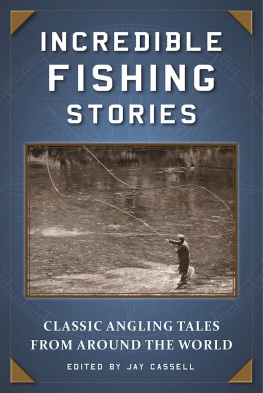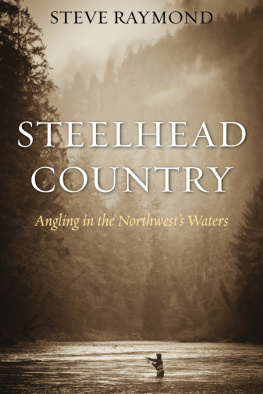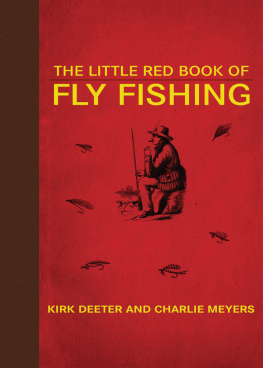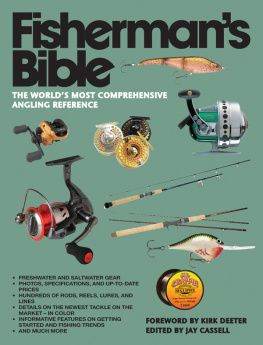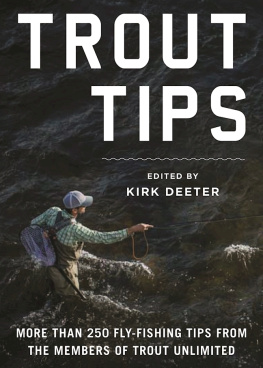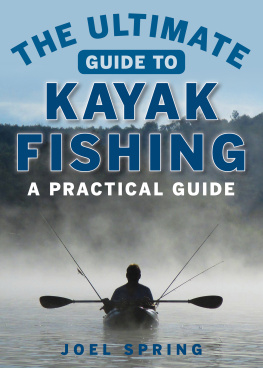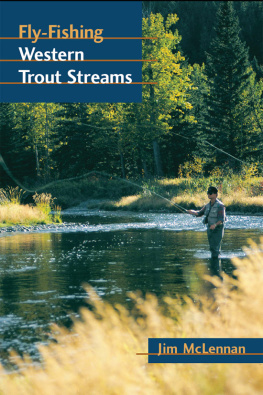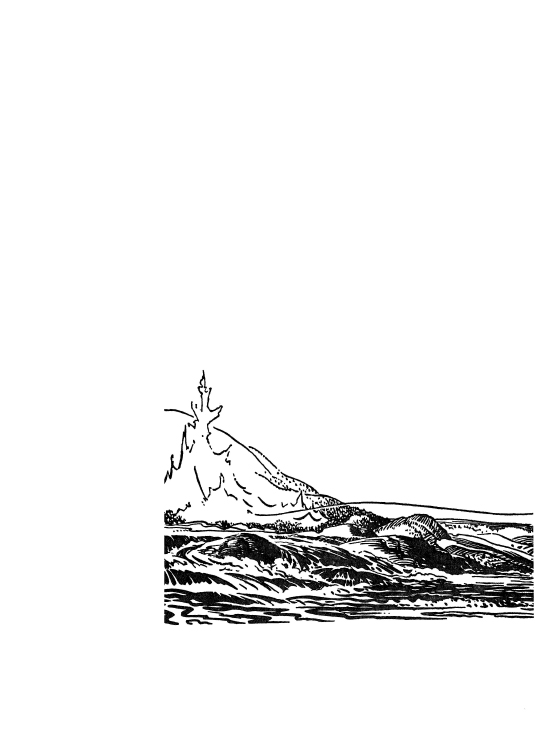
Foreword to the 2014 Edition
More than sixty years after its original publication, Fisherman's Spring remains remarkably clear, fresh, and enjoyable. Some matters, like those pertaining to tackle, have of course changed. But such matters are always changingand they have changed even more rapidly than usual in the past ten years. The prose in this fine book has not withered, though, in the way so much dull mechanical writing about angling too often does. Roderick Haig-Brown says that he is a writer first, then a fisherman. He fishes so wisely and well in print that Im sure he did on water, too; but it is his genial, wise, and thoughtful prose that sustains him.
Here, with grace, authority, and more than a little true poetry, he explores unique, memorable qualities of spring: the hatching of the first stoneflies, the stirring and escape of the salmon alevins from their egg sacs, the warming of lakes and the effects of snow runoff in the rivers, and more and more days of flashing life and color more brilliant than summers richness. The world awakens, and so do a fly-fishers dreams.
Spring gives Haig-Brown the chance, in more than thirty pointed chapters, to contemplate a great host of occasions in a fly-fishers life: the miracle of an unexpected fish, the great fruits of local knowledge, shrewd perceptions about casting, trips with his family, aspects of wading, the acquisition and use of a new rod, fly types and the importance (or lack thereof) of color and his varied experiences with them, early days astream, and those days most recentold memories and theories layered with the new.
He led an exceptionally rich life on the great Campbell River, and he shared it with his readers in keen detail. His writings were not only about the fishing but also about companions, weather, birds, flora, and even the history of the places he loved in the present. Rereading Fisherman's Spring and the other books in his seasons series is a little like fishing a stream you once loved and knew well and yet have almost forgotten. It is still there. At least in your imagination you may find it unchanged but with ever newly discovered pleasures. Like so much of Haig-Brown, rereading him encourages us to think more consciously, more wisely, about the full experience of our days on the water.
Nick Lyons
New York, New York
November 2013
Preface to the 1975 Edition
A fishermans seasons are not that much different from those of any other outdoor observer except that they are focused on waterrivers and lakes, ponds and streams, and the sea. In a world of great and varied beauty, nothing is more beautiful than water, especially moving water. I am aware of the beauty of water frozen into glaciers and icebergs, their immensity and power and the glorious lights that the sun can summon from them. I have again and again admired the breathless early morning calm on lakes large and small and the reflection of the hills about them. The power of ocean storms and the glory of ocean surf in sunlight have a magnificence beyond almost anything. Besides these splendors, the intimacy of a fishermans river may seem a slight thing. Yet I think that flowing water in all its forms is most beautiful of all.
There are large rivers and small rivers, rough rivers and quiet ones. I am not thinking of the sweeping calm of the lower reaches of great rivers like the Fraser and the St. Lawrence, nor of the wild fury of such places as Hells Gate in the Fraser Canyon, though these places too have meaning for fishermen. I am thinking chiefly of fly-fishing streams, clear-water, cool-water streams, not too large and formidable for intimacy. Every fisherman has several of these in his mind and memory; they are his special places and he knows the cycle of their seasons.
Perhaps the seasons are no more strongly marked along the streams than anywhere else. Plant growth springs, flourishes, falls into dormancy everywhere: the different birds come and go, the earth is warm or cold, there is snowfall and freeze-up, snow melt and the new warmth of the new seasons sun in Central Park or on city streets, in farmland or woodland as well as along streams. But along streams I think there is a special intensity. Life concentrates there; successions and contrasts are more dramatic. Insect life is especially rich and summons other life to its abundance. Nothing is more sharply and obviously seasonal than the runs of anadromous fish, especially the salmons, and these too bring other life to focus on the streams. Even in winter, so long as there is open water, there is life about the streams and in them too.
Whether or not a fishermans seasons are more blessed than those of others matters little. Certainly they contain life and change and excitement enough to fill many books. So these are four books of one fishermans seasons, originally written and published over ten or twelve years of seasons and now returned to print in a single year. They could be written again and undoubtedly will be, by other fishermen, of other seasons. For there are always new ways of seeing, new ways of remembering, and new ways of telling about it all. One hopes only that the seasons themselves will not change, nor the waters that respond to them.
Roderick Haig-Brown
October, 1974
Contents
The Art of Fishing

I N STARTING A NEW FISHING BOOK I have an uneasy feeling that I ought to protect myself with some such graceful apology as came so easily to Miltons pen when he began to write Lycidas. I have already written a lot about fish and fishing, and perhaps I have nothing new to say. Certainly I am not impressed with myself when I read the books of other fishermen and realize what effort and devotion they spend on their experiments and research and on just plain fishing. My trouble is that I am a writer first and a fisherman second. I go fishing quite a lot and I think about fishing a lot, but I write all the time. A writer doesnt freely choose what he writes about; he writes what is in him and of him, and he writes what he thinks people will want to read. I know people want to read about fishing because they tell me they do; I usually want to say something about fishing, because pleasant and interesting and satisfying things happen to me whenever I go fishing. So the result is a fishing book every so often. This one is three or four years, and three or four books, after the last one.
I devoutly believe that a healthy mans work should be the most important thing in his life, but I believe just as strongly that no mans keenest interest should be limited to the narrow specialization of his work. If it is he is something less than a man, living something less than a life.
The sport of fishing is an important part of life to many thousands of people, perhaps several millions of people, on this continent alone. It needs no more than this to make it an important subject. But it is also something more than a sport. It is intimate exploration of a part of the world hidden from the eyes and minds of ordinary people. It is a way of thinking and doing, a way of reviving the mind and body, that men have been following with growing intensity for hundreds of years. Fishing has contributed much to the minds of statesmen and Supreme Court justices, college presidents and philosophers, auto workers, pulp mill workers, real estate men, medical men, storekeepers, scientists, railroad engineers and lawyers; in turn, they and many others have contributed to the sport until it has become an art, ephemeral, graceful, complicated, full of tradition yet never static. It is as much a part of modem civilization as most of the minor arts and sciences and probably has more direct effect on more lives than any of them.

